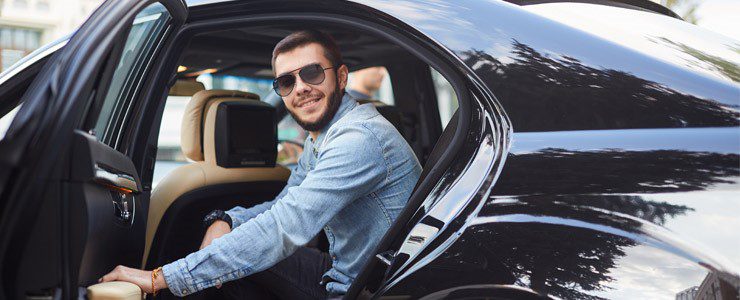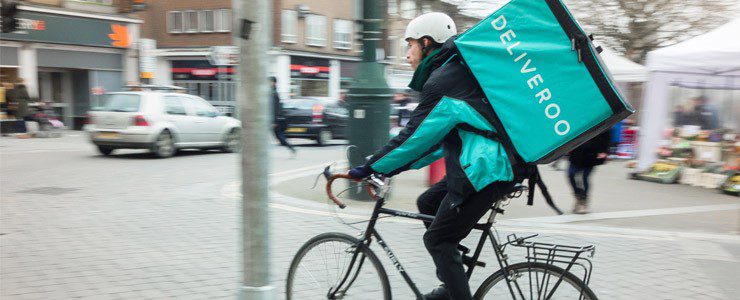
UBER: Eco-friendly transport
Love them or loath them, the transport giant Uber is further developing its eco-friendly mission by promoting London’s public transport options alongside its own services. It’s the first time the company has advertised a transport rival on its smartphone app with the new feature showing London’s public transport options with real-time information!
The company has always stated that it tries to reduce private car ownership in urban areas by helping people to “replace their car with their phone” and with this new addition to the app, which is expected to go live as early as the end of May, will this be a goal well achieved?
The US-based transport company recently launched a 15p-per-mile “eco-charge” in the capital, aimed at helping its drivers to buy electric vehicles to reduce emissions. This was a pilot scheme, with London being the first city in the world to get the extra charge which might be why, if you are an uber user, you feel like you’re forever getting into Toyota Prius’s or something similar.
Eco-friendly
Uber isn’t the only global company trying to help the environment. Etihad Airways has pledged to keep its long-haul flights free from single-use plastics and it completed its first such flight last month.
During the Abu Dhabi to Brisbane flight, all 95 items regularly used in the aircraft cabin, including cutlery, cups, headphone bags and toothbrushes, were replaced with bio-based alternatives.
Etihad joins the likes of Virgin Australia, which has banned plastic stirrers on flights. Thomas Cook has also announced its commitment to use recyclable or bio-based alternatives instead of plastic products on its airline and in its hotels.
Customer reaction
With so many people calling for a greener planet, surely there is always a positive reaction when a business decides to become eco-friendlier? Apparently not, in the case of Uber customers. The company’s decision to add the 15p-a-mile eco-charge to fares led to a negative backlash on social media with customers claiming black cab drivers would “have a field day” by charging cheaper fares than the Uber drivers.
An Uber driver using the app for around 40 hours per week will receive around £3,000 towards buying an electric vehicle in two years’ time, or £4,500 in three years. The company estimates the extra charge for customers will be around 45p for an average trip.
However, social media users claimed it was “just a scheme to get the fares up” and that Uber simply “weren’t making enough money”. They labelled the move a “cynical PR ploy”.
Resistant to change
Surveys show that older customers are more resistant to change and resent paying extra for services that are environmentally friendly. However, according to the online platform Conscious Consumers, 16-35 year olds (Generations Y and Z) are the best at being socially aware – so paying extra for an eco-friendly option is well supported.
The consultancy, Ethical Consumer, claims that the market for ethical products and services in the UK has already grown by more than £40 billion since 2008! The average household will spend £1,263 per year on ethically sourced goods, according to research.
The march towards ethical products is being led by younger consumers in the 18 to 24-year-old age bracket. Studies show the number of young people who have become vegetarian for ethical reasons has risen from 9% to 19% in the same period.
Higher prices
The cost of living an eco-friendly lifestyle can be more expensive with the cost of ethical goods and services being higher across every sector. For example, the average cost of a supermarket’s value range chicken is £2.40 per kg, while a free-range chicken is £6.25 per kg.
Eco-friendly laundry detergents are around 9% higher than ordinary ones and eco-friendly shampoos can be as much as 900% more expensive than the supermarket’s own range versions. Customers admit they “try to buy ethically” – but if the price mark-up is too great, they won’t bother.
Air pollution
Whether you agree with paying more for eco-friendly goods and services or not, Uber must be applauded for trying to reduce air pollution. Sadly, it is estimated around 40,000 people in the UK die early every year as a result of air pollution and a further two million London residents are being exposed to illegal levels of air pollution. So maybe one (or a few) taxi journeys could change the world!
On a happier note, since 2013, total nitrogen dioxide emissions in the capital have fallen by 9%. The cleanest buses have been put on the most polluted routes and the new ultra-low emission zone (ULEZ) penalises diesel cars and the highest polluting vehicles for entering the city – this is the first in the world to operate 24/7!
Electric cars are now taking over a bigger portion of the UK market which is great because they receive a subsidy of around £5000 and produce less dangerous carbon emissions reducing global warming and cutting air pollution. Winning! In urban areas of the UK, where toxic air is at its worst, sales of electric cars have grown by 37% since 2017, while sales of diesel vehicles have fallen by 30% – so, perhaps, there is light at the end of the tunnel!
Headspace Group can help innovators get off to a flying start, thanks to our expertise in renting out flexible co-working environments. We’re here to serve your every need with our range of inspirational workspace for the creative, technology and media sectors.
For further details, please give us a call on 020 3691 7500.
© alfa27 / Adobe Stock


